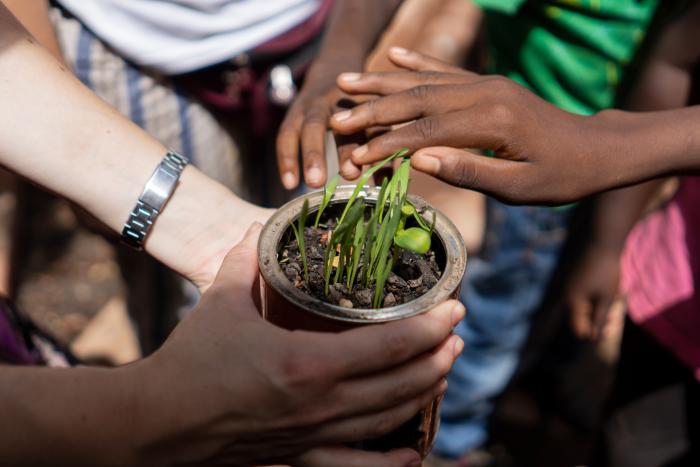Children grow taller in rural households where their mothers are supported to grow their own food – according to new research from the University of East Anglia (UEA).
The research, which looked at households in low- and middle-income countries, showed growing their own food helped mothers to prevent stunting, wasting and underweight in their children. Their children’s food was more varied, meaning they had access to different classes of food nutrients.
The study, ‘Impact of home food production on nutritional blindness, stunting, wasting, underweight and mortality in children: a systematic review and meta-analysis of controlled trials’, is published today in the journal Critical Reviews in Food Science and Nutrition.

Supported by ARC East of England Health Economics and Prioritisation theme, the team from the Norwich Medical School and the School of International Development at UEA analysed studies that introduced women to home farming in African and Asian countries including Nigeria, Ghana, India, Cambodia, Mozambique, Uganda, Kenya and Burkina Faso. The home farming included growing brightly coloured Vitamin A-rich fruit and vegetables such as sweet potatoes, and sometimes also included chicken farming.
Read the full article and find links to the publication here.